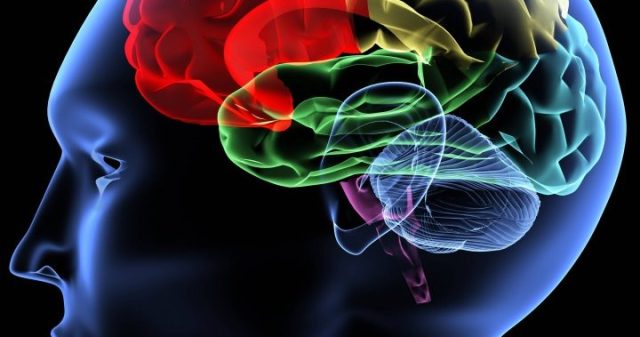There’s a scene in the biopic Creation Stories where Ewan Brenner, channelling Creation Records founder Alan McGee in a scene with his therapist, rants about the demands of finding The Next Big Thing in music. “I’m spending millions on noises that I have no idea if anyone will like!” Welcome to the record business.
What makes a song a hit? No one knows. It’s a mysterious organic process that no one has been able to unlock.
One record company president described things like this: “Running a record label is based on risk. We rely on creative types — musicians — to eventually supply us with songs that we hope the public will like. A song can be objectively great but if the public doesn’t bite, there’s no amount of money we can throw at marketing and promotion to make them like it.”
This hasn’t stopped people from trying to come up with a way to accurately predict hits.
When rock’n’roll was still young, a couple of promoters got it in their heads that the process of writing hit songs could be distilled down to a formulaic process. In 1959, Joe Mulhall and Paul Neff sent out a questionnaire to 3,000 girls about their likes and dislikes when it came to music. Their thinking was that if they could incorporate as many positive data points as they could into a song, then they’d be guaranteed to have a hit for their wannabe pop star, a 15-year-old American weightlifter named Johnny Restivo. When all the responses were collated, this song was the result.
The approach didn’t work. The Shape I’m In only managed to reach number 80 on the pop charts.
There have been many attempts at finding ways to predict hits, most often looking for people with “golden ears,” that amazing innate gut instinct possessed by certain people to hear success in something the public didn’t know it wanted. For example, in the early 1960s, the head of an American indie label started playing songs for his teenage daughter. She displayed a real talent for predicting which of them would do well — she had something like an 80 per cent success rate — but that turned out to be beginner’s luck and her prognostications faltered after about 20 attempts.
Meanwhile, the record and radio industries built businesses around golden-eared people like Clive Davis (discoverer of Janis Joplin, Barry Manilow, Patti Smith, Whitney Houston, and many others); Mo Oistin (Fleetwood Mac, Prince, Red Hot Chili Peppers); Seymour Stein (The Ramones, Talking Heads, Madonna). Rosalie Trombley rose from a receptionist at CKLW/Windsor (The Big 8) to someone who had an uncanny ability to pick hits. Not only did she convince Elton John to release Benny and the Jets as a single against all his reservations, but she picked hits from The Guess Who, Bob Seger, KISS, and many others.
Others have taken different approaches. Weezer’s Rivers Cuomo uses a spreadsheet method for songwriting, believing that his next hit is hiding in the data. In 2003, Polyphonic HMI introduced Hit Song Science, an AI company based in Barcelona, that used machine learning to analyze millions of data points gleaned from Billboard hit songs going back to 1955. The company believed that it could tease out the underlying audio foundations of popular songs to not only explain their popularity but to use that information in creating new hits. While it may have predicted the Grammy Award-winning success of Norah Jones’s debut album, Come Away with Me (that’s up for debate), certified U2 hits run through the project were rejected as duds.
Hit Song Science isn’t the only company to try to tap the predictive powers of AI. MusicXray, Bandmetrics, Mixcloud, and a few others are also in this space. The potential payoff is huge. At least 100,000 new songs are uploaded to streaming music services every day, a lot of them junk. If someone can come up with an idea to improve filtering algorithms to pick out only the best of the best, then everyone from record labels to radio stations to streaming platforms will want in.
Maybe this old data-driven approach is too limited. Welcome to the new field of “neuroforecasting” music. This is real pre-cog Minority Report stuff: The use of neural activity from a small group of people to predict future mass population effects and behaviours.
According to a report at Neuroscience.com, researchers in the U.S. are augmenting AI machine learning with neural — i.e. brainwave — responses from live humans. Study subjects were set up with off-the-shelf physiologic sensors, which collected brain activity associated with mood and energy levels. Different statistical approaches were applied to the data and machine learning was brought into the mix and applying AI to the neural responses recorded when actual humans listened to a song.
The results were shockingly good. The researchers claim an accuracy rate of 97 per cent when it came to predicting which songs would be hits. That’s way, way up from the 50 per cent — a coin flip, really — derived from other more traditional methods. To be fair, the test included just 33 people and their neural activity and involved 24 songs. But 97 per cent is an outstanding success rate — if the tech actually works as advertised.
Will people with golden ears and gut instincts about music be made redundant? I hope not. As good as any AI is, it can only mimic what it digs out of data and prompts. Only humans (for now) can get excited by something new and different.
However, as neuroforecasting is refined, it will have applications in infinite areas of product testing and focus groups — for those companies and institutions that can afford it, of course. Music will be a big starting point. But where will it take us? We’ll have no choice but to wait and find out.
—
Alan Cross is a broadcaster with Q107 and 102.1 the Edge and a commentator for Global News.
Subscribe to Alan’s Ongoing History of New Music Podcast now on Apple Podcast or Google Play
© 2023 Corus Radio, a division of Corus Entertainment Inc.



















